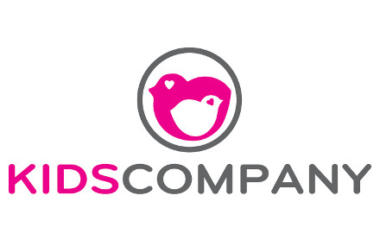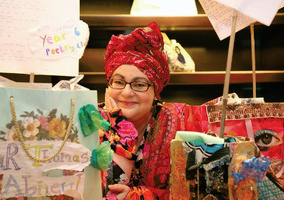Kids Company should have built up reserves, ensured the board had the right skills, and kept better records, the Charity Commission has said.
In addition, the repeated failure to pay HMRC or its own staff on time amounted to formal “mismanagement in the administration of the charity”.
A year on from a High Court ruling, which cleared the trustees and chief executive and praised them for their efforts, the charity regulator has concluded its investigation.
Although the regulator has not taken any regulatory action against former trustees, the former board members said they are disappointed that the Commission has come to a different conclusion than the High Court.
In the Commission’s statutory inquiry report, published this afternoon, the regulator found that there was “mismanagement in the administration of the charity”.
Kids Company collapsed in the summer of 2015, following weeks of negative stories about its operations. But the charity had been in a financially precarious position for years.
The Commission concluded that had trustees taken the opportunity to build reserves it might not have collapsed.
Today’s report also criticises the charity for destroying records in the aftermath of its collapse, but acknowledges that trustees stopped this behaviour once they became aware of it.
Elsewhere the report highlights that the charity’s own measure of how many people it helped lacked transparency.
Records destroyed
When Kids Company collapsed records of those it was helping were destroyed.
The Commission says this was “not in the best interests of either the charity or its beneficiaries” because it meant new providers did not have access to information about clients.
In addition to records being destroyed the Commission said it could not find evidence of other records.
“The inquiry could find only limited and, in its view, insufficient records of decision making in relation to expenditure on some beneficiaries for school fees, rent and accommodation, cash payments, clothing and birthday presents,” the report says.
Despite trustees acting to stop records being destroyed, the Commission concludes that this “fell below the standards the Commission would expect from a charity”.
Transparency about the number of beneficiaries
There have been long-standing questions about how many young people the charity was actually helping.
According to the Commission, in January 2016 Kids Company’s former CEO, Camila Batmanghelidjh, told the inquiry that there were 36,000 beneficiaries per year.
This was made up of 19,000 school pupils, 9,700 children at street-level centres and 7,200 adults.
These figures also include indirect beneficiaries, “meaning that if one child in a family was assisted the other children in that family were counted as beneficiaries, and if one child in a school class was a direct beneficiary the other children in the class were counted as indirect beneficiaries”.
The Commission says that this could have been made clearer “in the interests of transparency and to avoid misconceptions”.
Reserves could have avoided closure
For a number of years Kids Company had failed to build up any meaningful reserves, believing that donors expected funds to spent on the front line.
The Commission disagrees, saying: “It is unclear to the inquiry the extent to which donors would have ceased to make donations to the charity if a proportion of the funds donated had been put into reserves.”
The regulator also highlights that other charities do “successfully manage to build reserves whilst being largely reliant on grants and donations”.
Although the High Court found that trustees’ position on reserves was reasonable, the Commission felt otherwise.
“In the inquiry’s view it would have been prudent for the charity to seek to build up reserves to provide it with a financial cushion in the event of unexpected expenses or an unexpected fall in income,” the report says.
Indeed, it was a police investigation into safeguarding concerns, which led donors to withdraw support, which prompted the charity’s closure.
“If the charity had had a higher level of reserves, it may have been able to utilise these to weather this storm and thereby avoid insolvency and/or wind up in a more orderly fashion or merge with another organisation and therefore ensure ongoing care and support for its beneficiaries,” the Commission said.
Board skills
The inquiry report says that a charity Kids Company’s size would have benefited from a wider range of skills on its board, although it acknowledges that trustees were in the process to sorting this out.
“Whilst some of the trustees had previous experience of being trustees of other charities, in the inquiry’s view, given the size of the charity, the trustee board may have benefitted from having someone on the board with operational experience of running a large charity, for example a CEO of a large well-run charity,” the Commission says.
The Commission adds that “none of the trustees appeared to have any qualifications or experience in the field of youth services or psychotherapy”.
Furthermore, if Kids Company had recruited new trustees more frequently they may have “challenged the status quo more effectively”.
Commission: Collapse was a ‘defining moment’
The Commission highlights that Kids Company’s collapse had ramifications for the rest of the sector.
Helen Stephenson, chief executive of the Charity Commission, said: “Kids Company’s sudden closure was a significant event, not just for those involved in and supported by the charity, but for wider society.
“It served as a defining moment in the relationship between charities and the public on whom they ultimately rely, highlighting a sharper scrutiny of those running charities in the media and parliament.”
The Commission also acknowledges its own role, after a parliamentary inquiry said it should be better at identifying high-risk charities.
“We are investing in technology that will steer when and how we engage with charities presenting financial risk factors and a better set of indicators that form a financial risk assessment, including significant or rapid growth. As a result, we should be better able to be proactive, for example assessing charities’ ability to meet the opportunities and risks brought about by growth,” it said.
Former trustees: ‘Disappointed that the Commission discounted High Court findings’
The former trustees and their lawyers criticised the Commission for contradicting the High Court.
In a statement former trustees said: “After an investigation lasting over six years, the Charity Commission has not found anything that would warrant bringing regulatory action against anyone involved with Kids Company. We are pleased with that conclusion but disappointed that the Commission, in criticising some decisions we took, has chosen to discount the clear findings of the High Court that completely exonerated us.
“The High Court undertook a far more forensic examination of the affairs of the charity than the Charity Commission. In a ten-week trial, it examined more than 18,000 pages of evidence and heard evidence under cross-examination from all relevant and available witnesses before dismissing the case against us not just because of the Official Receiver’s own failings in how they pleaded their case, but on the substance of our conduct as trustees. The High Court made it clear that the case should never have been brought and awarded us indemnity costs against the Official Receiver.”
Philip Kirkpatrick, deputy managing partner at Bates Wells, who represented some of the trustees, says: “We’re pleased that the inquiry has concluded that no regulatory action should be taken against our client. However, the Charity Commission’s report is unbalanced and ignores many central features of the High Court’s judgment.
“Assurances of funding from the government and philanthropists were central to decision making by trustees, which the High Court recognised. The Commission also ignores the High Court’s finding that the charity would most likely have survived (following a restructure) if unfounded allegations of sexual assault had not been made.”
NCVO: Lessons for other charities
Sarah Vibert, interim CEO of NCVO, said: “Kids Company was a highly unusual charity with a risky business model, but trustees can learn lessons from its failure and ensure that their organisations have sustainable funding models and appropriate oversight.
“It’s important that when significant risks become apparent, trustees act quickly to make necessary changes and provide leadership to protect those who are supported by the charity from a sudden and unexpected closure.
“High profile cases, like Kids Company, are rare and the vast majority of charities - ultimately led by volunteers - are well run. Charities remain one of the best vehicles for people to give time, money, and energy to change the world around them.
“While there are lessons to learn, charities should not be afraid to innovate, adapt, and take risks, in the pursuit of their mission. As the world around us changes rapidly, charities will need to put the right processes, safeguards, and oversight to manage risk, not eliminate any possibility of risk.”
Batmanghelidjh: 'Only an independent investigation can identify the forces which drove the closure of Kids Company'
In a statement Batmanghelidjh accused the Commission of presenting “distorted and false information” intended to “discredit” the charity.
She called for “an objective legal investigation of matters which the Charity Commission have either ignored or failed to notice”.
Her lawyers are currently planning to bring a judicial review of the Commission’s findings.
She said: “Only an independent investigation can identify the forces which drove the closure of Kids Company. Undoubtedly, the charity was exposed to a politically driven smear campaign.”
She also highlighted the favourable High Court ruling from a year ago.
“I want people to realise the conclusions of the Charity Commission are unsound because they are politically biased,” Batmanghelidjh added.
Editor's note: 10 February
This story has been updated to include a statement from Camila Batmanghelidjh
Related articles











